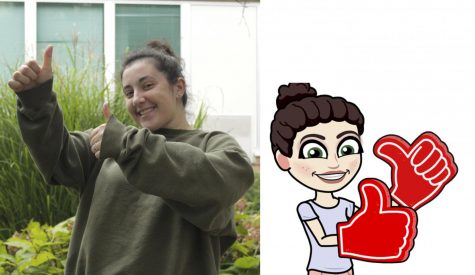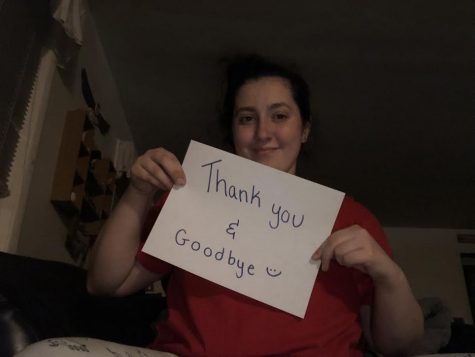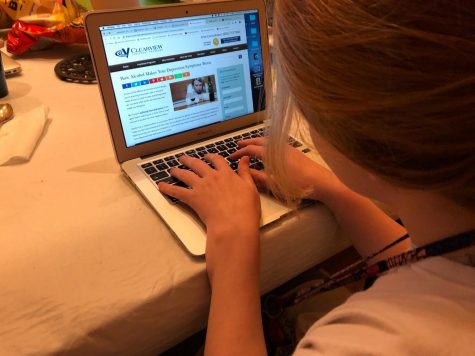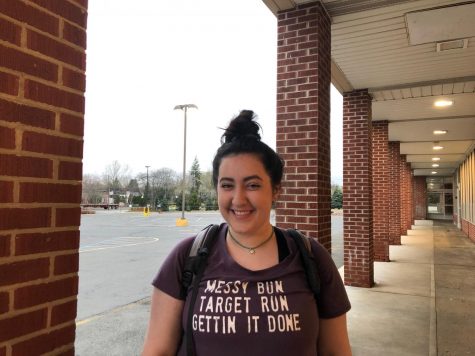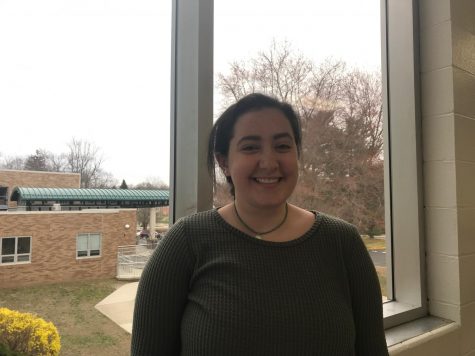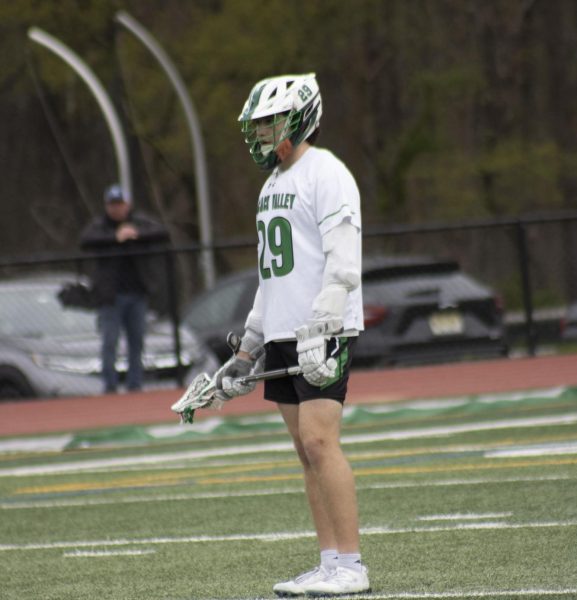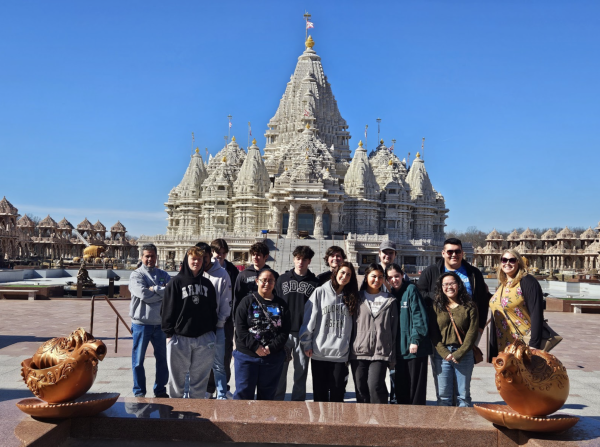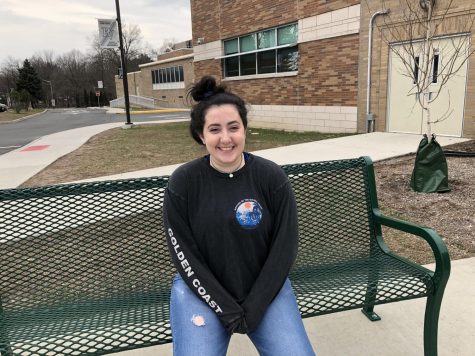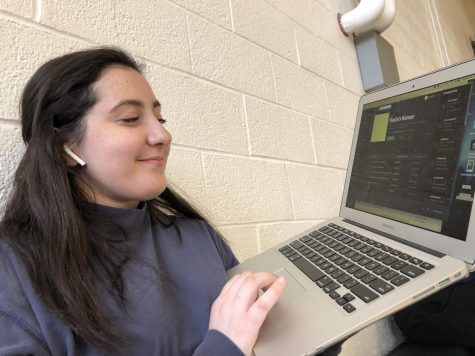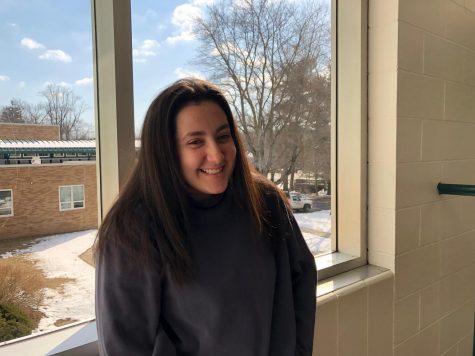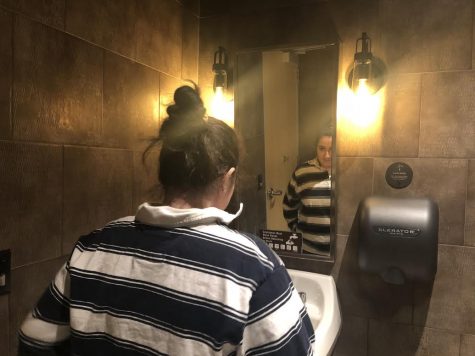‘I am a strong advocate’
PV alumnus shares her story with depression and anxiety
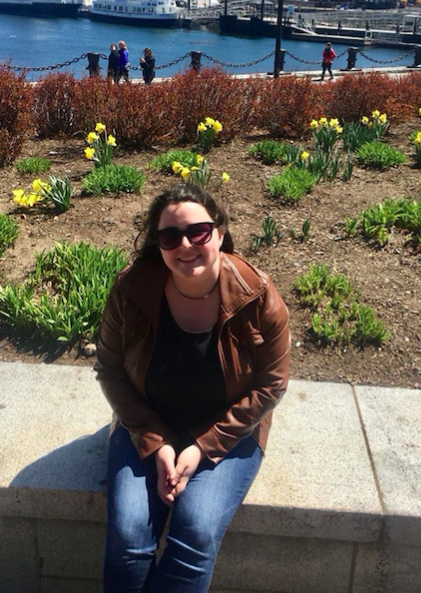
Contributed by Sarah McCambridge
This week, PV senior Kayla Barry talked to PV alumnus Sarah McCambridge who graduated with the Class of 2017. She discusses her own struggles with depression and anxiety.

Editor’s Note: Kayla’s Korner will be a reoccurring column that deals with mental health and teenage issues. I recently interviewed Sarah McCambridge, a Pascack Valley alumnus of the Class of 2017. She told me her own story dealing with depression and anxiety and allowed me to tell all of you. Thank you, Sarah. Your bravery and story is inspiring and needs to be told.
McCambridge first began her battle with mental illness around the age of 16. Although this was when she first believed that her battle had started, after going through therapy, she soon realized that it had been a lot longer.
“Everyone has anxiety, before a test, a presentation or even meeting and talking to someone you don’t know,” McCambridge said. “But I have strong memories of my mom leaving me home alone and before I would let her leave, I would have to check in every closet, cabinet, underneath every bed and behind every door and curtain before she would leave in fifth and sixth grade.”
She continued that during the summer going into seventh grade. McCambridge would not let her parents get into a car without her as she was terrified that they would get into a car accident.
McCambridge also would pick at her nails or her skin when she was anxious.
During her sophomore year of high school, she had her first ever panic attack.
I was still having panic attacks, at least once a day, and my medication was not working either. I was told that this would be something I would be dealing with the rest of my life.
— PV alumnus Sarah McCambridge
“It was late at night and I couldn’t sleep because I thought I was hearing footsteps in my house down the hall,” McCambridge said. “That was the first and only one for a while.”
McCambridge was involved in Pascack Valley Theatre, as well as the lacrosse team, while in high school, which sometimes occurred at the same time.
“There was a scrimmage for lacrosse on the same day as opening night for theatre,” McCambridge said. “I was so anxious to have to tell my coach or director that I was going to miss something that I had two panic attacks that day in school.”
Despite the anxiety, everything worked out that day.
One of McCambridge’s main triggers was feeling unsafe. Her panic attacks became more and more frequent with the constant fear of school shootings, terrorist groups, or dying by nuclear weapons or war and attacks.
During the summer going into her junior year, McCambridge started seeing a nurse practitioner where she was first put on medication. She also started going to therapy a few months after.
“Nothing seemed to be working,” McCambridge said. “I was still having panic attacks, at least once a day, and my medication was not working either. I was told that this would be something I would be dealing with the rest of my life.”
During this time, McCambridge was diagnosed with depression.
Later that year, McCambridge was supposed to be going on a PV trip to England and France. She was told that she could not go on the trip because of her frequent panic attacks. She understood, but was still upset.
Her job at theatre changed during a show due to the risk of her having a panic attack. McCambridge also ended up quitting lacrosse due to her frequent panic attacks on and off the field.
McCambridge started to have many suicidal thoughts where she planned on crashing her car or overdosing on pills. She was still in therapy during this and told her therapist about the reoccurring thoughts.
“My therapist asked if I need a break and I said yes,” McCambridge said. “School was becoming increasingly hard with all the panic attacks.”
The following week, McCambridge was taken to the emergency room at Hackensack Hospital. The doctor came in and asked her some questions. She was then told the next day that she would be going to a psychiatric hospital and that her mom could not come with her.
I immediately started panicking, saying I didn’t mean it and I was really fine. But I was told that I did not have a choice.
— PV alumnus Sarah McCambridge
“I immediately started panicking, saying I didn’t mean it and I was really fine,” McCambridge said. “But I was told that I did not have a choice.”
She stayed overnight at the hospital where a nurse was constantly watching her. When she would go into the shower or bathroom, the door had to be open so the nurse could make sure everything was okay.
The next day, McCambridge was taken on a stretcher to the ambulance that would bring her to a hospital in Summit.
When she arrived at the psychiatric hospital, she said goodbye to her mom. She then was strip searched. McCambridge stayed at this hospital for six days and her parents drove 45 minutes to visit her every day at the hospital, even on Easter.
“I was blessed with the most patient, understanding, and amazing parents in the entire world,” McCambridge said. “The entire time they were there every step of the way, helping me through it all.”
At the hospital, she made some friends and spent most of her time coloring, playing cards, or writing in her journal. She was put on new medicine in the hospital and that would be the medicine she would be on for the next three years.
“At the hospital, I was one of the lucky ones,” McCambridge said. “There was girl that was 9 years old in there who had been there four different times. There was a 15-year-old who was in and out of the hospital three different times in the last two months. And a boy that was there for four weeks and his mom only came twice.”
McCambridge is grateful to have a support system at home and soon arrived back home and saw her siblings for the first time in a week, as they were not allowed to see her in the hospital. McCambridge, then, began High Focus, an outpatient program in Paramus two days after leaving the hospital.
“I can’t really say the hospital did anything to help me feel better,” McCambridge said. “If anything it scared me into never thinking like that again.”
McCambridge went to High Focus all day from 9 a.m. to 3 p.m. for two weeks. She was not allowed back to school until she dropped down in the High Focus program where she only had to go for half the day.
According to McCambridge, High Focus did not do much for her either. She was permanently released from High Focus in May and began working with her normal therapist again. While in High Focus, McCambridge was not allowed to contact or see her regular therapist.
Even though she went through all of this, McCambridge did not magically come out better.
“There are still bad days and I did have thoughts of hurting myself after that,” McCambridge said. “I still had panic attacks.”
She began seeing a functional doctor who suggested a gluten free diet which helped her anxiety a lot.
McCambridge recently got off her medication this past May. She admitts that it has been hard without it, but she tries to keep herself mentally healthy.
I am a strong advocate for mental health and illness and will always push someone to take time for themselves if something is getting overwhelming.
— PV alumnus Sarah McCambridge
She is currently a sophomore at Monmouth University and is planning on being a middle school history teacher.
In her spare time, she also helps out with American Foundation for Suicide Prevention Out of Darkness walk every year since she got out of the hospital. She collects cards for an organization in San Francisco, California that gives the cards out to patients in psychiatric hospitals that do not have anyone else.
“I am a strong advocate for mental health and illness and will always push someone to take time for themselves if something is getting overwhelming,” McCambridge said. “I have seen what can happen to people, like myself, when not communicating with people about what is going on.”
She continues that during her junior year, her family or friends had no idea how she was feeling. McCambridge, though, grew so much from it and found out a lot about herself.
“Just because something is tough or you’ve had a bad day does not mean it will stay that way forever,” McCambridge said. “Things will work out in the end.”
Coming next: Kayla’s Korner will be continuing with weekly articles. Next week, discuss the need to take social media breaks.

